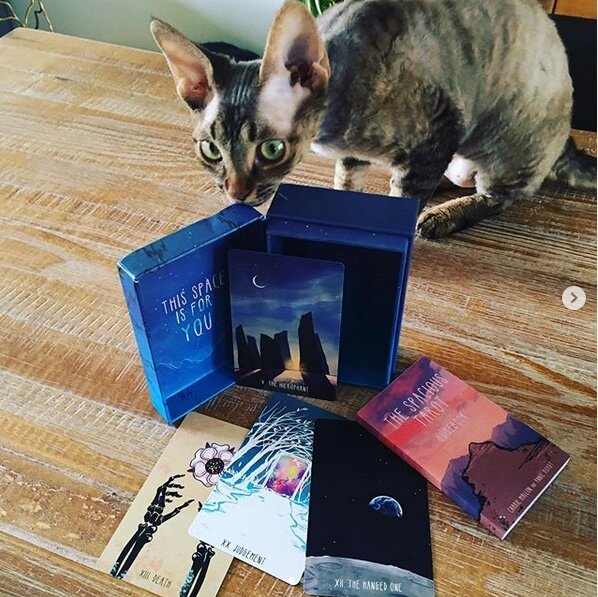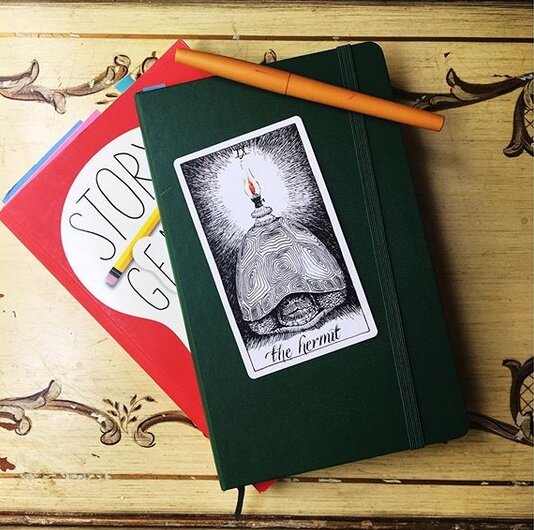“Mental toughness doesn’t make you invincible, it makes you adaptable.”
Mindset and Performance: A Drama In 3 Acts
Losing The Jump
Most of you probably don't know this about me, but I used to be a competitive figure skater.
I didn't quit skating because it was too expensive, although that was part of it. And I didn't quit because I was moving away from my rink and my coach, although that was part of it too.
I quit because I lost my jump.
A jump I could land in my sleep (the notorious Axel, if you must know), a jump my body was trained to land. A body that would get to the rink at 5:30 in the morning to jump and fall and fall again, a body my single mother and grandparents had scrimped and saved to have molded by coaches that cost $1/minute. A body that contained a heart that loved skating as much as that girl from The Queen's Gambit loves chess.
I had to quit doing the thing I loved most in the world because my mind had convinced me I couldn't do it.
Despite the heartbreak of walking away from the sport my family and I had invested so much in, my years on the ice taught me a very hard and important lesson about how much our mindset plays a role in performance. It's a big part of why I became a writing coach in the first place - we're the scribe version of the sports psychologist. It mother-loving KILLS me when I see a talented athlete crumble to pieces simply because of the games their mind is playing. It kills me when I see writers do it, too.
As I tell the writers I work with: 99% of your problems have nothing to do with your craft. It's your inner critic and the fear, self-doubt, comparison, perfectionism, and resistance that you have to watch out for.
This past weekend, my husband and I were glued to the TV, watching Nathan Chen rocks his quads and get a fifth National title - what the what?! My husband was a hockey player, but he respects the toe-pick. (Cue The Cutting Edge in-jokes). The former ladies two-time national champion, Alysa Liu, was one of the first women to land a quad in competition, but this year she'd had a growth spurt and ended up in 4th place, no longer able to land the quad that had given her such an edge. At only 15 years of age, she'd lost her jump. Boy, do I remember how shitty that feels. One minute, your body knows exactly when to snap in and out of those revolutions in the air and the next you're having your ass handed to you by a piece of ice.
A skater can lose her jump for a lot of reasons, such as an injury or growth spurt, but one of the easiest ways you can lose your jump is getting psyched out.
Just watch former champion Gracie Gold's performance at this year's nationals and you'll see that in action. Watch her body as she skates to the center of the rink before her long program. Watch how terrified she is.
Performance & The Mind / Body Connection
Out in the Cold: Letting Your Mind Win The Gold
Skaters aren't afraid of falling. Hell, that's just a day at the rink. So what is it about those jumps that make them hesitate or pop out of the revolutions? They know they can land it, their bodies know they can land it, but their minds say NO. They get stuck in a story they're telling themselves, in comparison, in anxiety that results in a spiraling panic.
Right when they need to be most in tune with their bodies, at the height of their flow, they let the inner critic in: suddenly, the skater ditches her body to hang out in her head--which has no idea how to maneuver on a blade thinner than a pinkie nail.
The bulk of the work I do with my writers is training how to get our bodies and minds communicating, how to turn that NO to a YES, how to build up the courage to go for that quad, even if we're not certain what will happen once we get into the air.
Quick: what does flow feel like in your body? What does it feel like when you're running on empty? Next: How often do you force yourself to write when you're on empty? Yeah? How's that going for you?
It takes training to get your jump back - or to land it in the first place. No skater slumps into the rink once a week around noon, doesn't stretch, has an hour to spare, and expects excellence. It's the same for us writers: if we want to be good, to be better, to reach our goals, we need to train.
We need to develop mental toughness and the ability to adapt to whatever life throws our way so that our writing isn't the first thing that goes out the window when life gets messy or complicated.
At the same time, we need to bring more ease, spaciousness, playfulness, and curiosity into our practice. Discipline might look like recognizing that you don't have a single story fragment to work on, that your well is dry, and so instead of opening that document and forcing your words out for the day, you instead court flow and patiently wait for your story or character - your jump - to get back into your body.
Trust me when I say that pushing yourself when you've got nothing will end in tears.
My coach told me to lay off the jump. That I was developing bad habits by attempting it when I wasn't squared away mentally. He wanted me to work on other skills - my skating craft, my other jumps, my spins. I ignored him because I so desperately wanted that jump back. I should have heeded my coach's advice. Not only did I lose the jump forever, I lost skating too.
The last time I attempted the Axel was in competition. I fell on my ass while "Lara's Theme" from Doctor Zhivago played over me, in a costume my mother had hand-sewn each sequin onto. I looked up and saw my coach shake his head - he would stop working with me not long after. He knew I didn't have the mental toughness to skate across ice dyed with the Olympic rings. I knew that too.
I don't want you to be out in the cold like I was with your writing, standing alone in the center of a block of ice realizing, this is it, it's over before the music even stops playing.
How To Get Your Jump Back As A Writer - Or Land It For The First Time
Finding Gravity
Writers who’ve lost their flow (their “jump”) tend to respond in one of two ways: they either push themselves too hard and end up creating a misery of bad habits and dissapointments or they give up entirely, skating off the ice for good. Below are a few ways to get your “jump” back:
Watch my favorite skate of Nathan Chen's: What would it feel like and what would it take for you to feel and perform this way in your writing seat? Journal and see what you come up with. What shifts might need to happen, what limiting beliefs are keeping you from finding your place in the air?
Find your center so you can find gravity with meditation. A little mindfulness for writers goes a long way.
Fill the well. You can’t write on empty.
Court flow by getting curious. Rather than push yourself (that never works), see if you can reconnect to what makes you write in the first place, re-identifying with the spark that induces flow.
Being a world-class athlete takes training and discipline. I like a simple habit tracker to help me see really clearly whether or not I'm getting my butt in the chair (and on the meditation cushion, too).
This podcast with the Yankee's sports psychologist, Lauren Johnson, was killer. Ignore all the weird advertising for Bitcoin at the beginning. If you don't have time, no worries: I'll be writing a blog post about this soon. She's got some REALLY nifty and simple takeaways to get your mindset back on track and your butt in the chair, as well as healthy ways to measure and track growth and success. Big ups to my writer who sent this my way - you know me too well!
If your story or characters feel out of reach, just remember: they're right inside you. Your body remembers. Trust it. Trust yourself.
If you need some help in the kiss and cry, click below:




























































